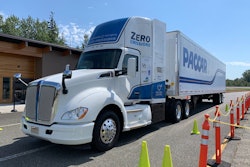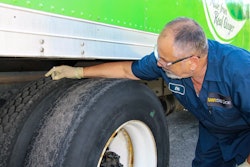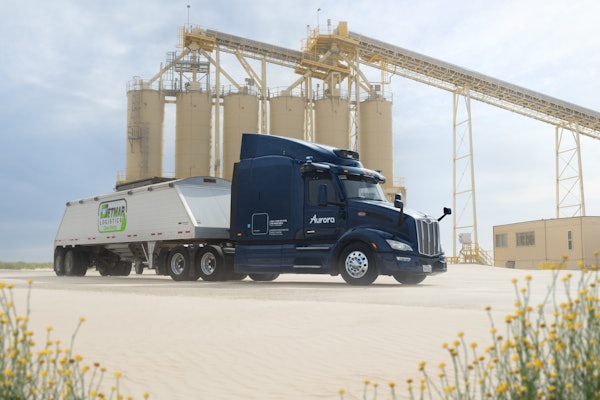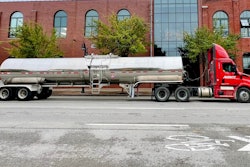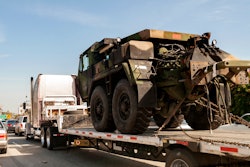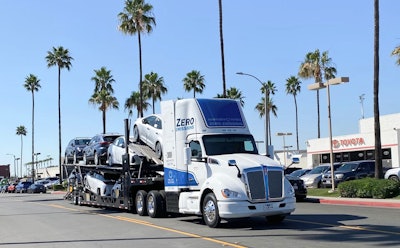
As California and New York both push for tougher zero emission vehicle laws, they’re taking different approaches to cleaning up medium and heavy-duty vehicles while battling the same political and legal hurdles.
In late August, California announced that it was transitioning cars and trucks to zero emissions by 2035. New York followed in California’s footsteps last week and enacted its own 2035 ZEV deadline though unlike the Golden State, its medium and heavy-duty vehicles face more lenient requirements.
Critics have pointed out that states wishing to set their own ZEV laws require a federal waiver under the Clean Air Act, and even with a waiver, face an uphill battle in court.
According to The Washington Times, states wishing to implement ZEV requirements would have to side-step the Energy Conservation and Policy Act of 1975, which created the corporate average fuel economy (CAFE) program and prevents states from setting their own mpg standards.
Agency powers were also put in check this year with West Virginia vs. EPA, where the Supreme Court made clear that the major questions doctrine “requires that agencies have clear Congressional direction when a proposed regulatory action involves issues of broad social, economic, or policy consequence,” Washington Times columnist Michael McKenna writes.
[Related: Toyota, Kenworth claim success on hydrogen fuel cell truck partnership]
Following political and legal maneuverings, it’s still possible that California, New York and other states can be cleared to set their own ZEV laws.
With California frequently setting the pace for emissions doctrine nationwide, CCJ got in touch with the California Air Resources Board to learn more how the state plans to apply its 2035 ZEV deadline with commercial vehicles.
As it turns out, commercial vehicle fleets have some leeway when it comes to meeting that 2035 deadline.
The schedule for full electrification is:
- 100% zero-emission drayage trucks by 2035 (applies to all drayage trucks, new and used)
- 100% zero-emission off-road vehicles and equipment by 2035, where feasible
- 100% zero-emission medium and heavy-duty vehicles by 2045, where feasible
“Commercial fleets (non-drayage) would be affected if they own, operate or direct 50 or more trucks under common ownership and control or have $50 million or more in annual revenue,” explained CARB spokesman David Clegern. “They would need to phase-in ZEVs from 2024 to 2042. The exact dates depend on the truck type and which of the two compliance methods they choose to use.”
The compliance methods are as follows:
- The model year schedule requires all new additions to the fleet to be ZEVs (if available), and allows existing trucks to be used for their minimum useful life before the truck need to be removed from the fleet. The minimum useful life is when the truck first reaches 800,000 miles or the engine reaches 18 years, but is not less than 13 years.
- The ZEV Milestone Option requires fleets to meet targets for ZEVs as a percentage of the fleet. It is phased-in based on the count of trucks by body type based on their suitability to be ZEVs. For example, 10% of box trucks would need to be ZEV starting 2025; 10% of day cab tractors would need to be ZEV starting 2027; and 10% of the sleeper cab tractor would need to be ZEV starting 2030. These fleet percentages are phased in so that all trucks in the fleet would be ZEV between 2035 and 2042.
New York’s 2035 ZEV deadline “will require all new passenger cars, pickup trucks and SUVs sold in New York State to be zero emissions by 2035,” according to a press release from the office of Democrat Governor Kathy Hochul.
The ZEV law would be phased in requiring light-duty ZEVs to comprise 35% of sales for model year 2026, 68% of sales by 2030, and 100% of sales by 2035. Cars, pickups and medium-duty vehicles would also face new pollution standards for model year 2026 through model year 2034.
Last year, New York enacted its Advanced Clean Trucks (ACT) rule which requires OEMs to sell an increasing number of medium and heavy-duty ZEVs.
The regulation requires 100% of medium- and heavy-duty vehicles sold, leased or registration in the state be zero-emission by 2045, where feasible. The ACT regulation will also result in substantial reductions of particulates, nitrogen oxides, and toxic pollutant emissions in disadvantaged communities that have been disproportionally impacted by diesel truck pollution.




